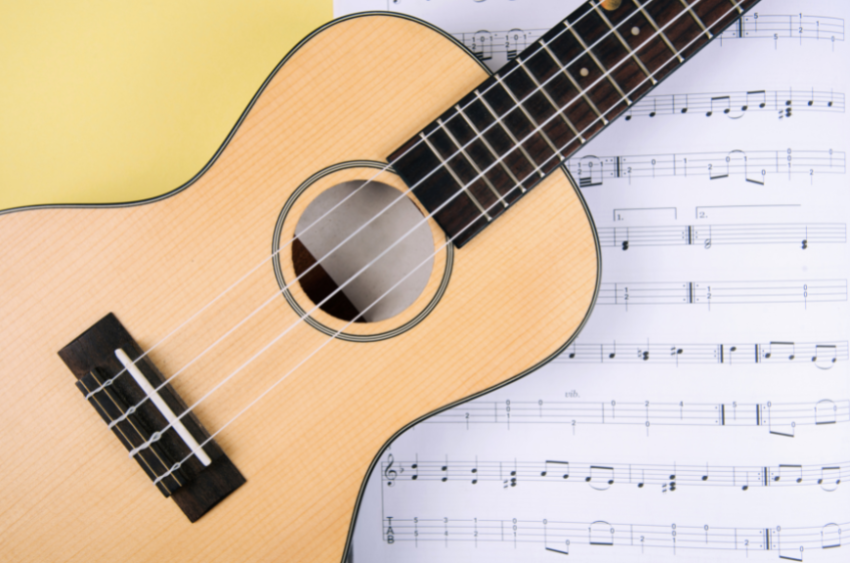The strings of a ukulele are one of the most important elements of the instrument. They determine the sound and playability of the ukulele. In this blog post, we’ll be taking a closer look at the strings of a ukulele and everything you need to know about them.
Standard Ukulele Notes
A standard ukulele has four strings. These strings are usually tuned to the notes G-C-E-A. This tuning is known as reentrant tuning and is the most common tuning for the ukulele.
Tension of Strings
The tension of the strings is another important factor to consider. The tension of the strings affects the playability and feel of the ukulele. Strings with high tension are usually harder to press down, but have a clearer tone. Strings with lower tension are easier to play but may have a more muted tone.
What are Ukulele Strings Made of?
Ukulele strings are typically made of nylon or fluorocarbon. Nylon strings are the traditional choice for ukuleles and are known for their warm, mellow tone. Fluorocarbon strings are a newer option and are favored by some players for their brighter tone and improved tuning stability.
Strings and Sound Quality
The quality of the strings you use will have a big impact on the sound of your ukulele. Higher quality strings will generally produce a clearer, more defined tone. However, the sound quality also depends on factors such as the type of wood used for the body and neck of the ukulele, as well as the size and shape of the instrument.
Examples of String Brands
There are many different brands of ukulele strings available, each with its own unique sound and feel. Some of the most popular brands include:
- Martin
- Aquila
- Worth
- D’Addario
- GHS
According to a recent survey of ukulele players, the most popular brand of strings is Aquila, with a 47% market share. The second most popular brand is Worth, with a 28% market share.
Strumming the Strings
The strings of a ukulele play a crucial role in determining the sound and playability of the instrument. Whether you’re a beginner or an experienced player, it’s important to choose the right strings for your ukulele. Experiment with different brands and tensions to find the strings that best suit your playing style and sound preferences.
Are Ukulele Chords the Same as Guitar Chords?
The ukulele and guitar may seem similar, but there are differences between the two that go beyond just size. One of the biggest questions beginners ask is whether the chords are the same on both instruments.
The Short Answer
No, Ukulele chords are not the same as guitar chords.
The Detailed Explanation
The ukulele has four strings, while a guitar has six. This difference in string count means that the notes available to you on each instrument are different. A ukulele is typically tuned to G-C-E-A, while a guitar can be tuned to a variety of tunings, including standard tuning (E-A-D-G-B-E).
Another factor that makes ukulele and guitar chords different is their relative size. A ukulele is smaller than a guitar, so the frets are closer together. This means that you may have to use different fingerings to play the same chord on each instrument.
Examples: To give you a better understanding of how the chords differ, let’s take a look at some common chords:
- C Major: Ukulele: C-E-G Guitar: C-E-G-C-E
- F Major: Ukulele: F-A-C Guitar: F-A-C-F-A-C
- G Major: Ukulele: G-B-D Guitar: G-B-D-G-B-D
Despite the differences in chord shapes and fingerings, the good news is that many songs can still be played on both instruments. In fact, most ukulele players also play the guitar, and vice versa. This means that once you learn the chords on one instrument, it’s relatively easy to apply them to the other.
Conclusion
The standard string names of a ukulele are G-C-E-A, and the chords are not the same as guitar chords. However, many songs can still be played on both instruments. Once you learn the chords on one instrument, it’s relatively easy to apply them to the other. Be sure to experiment with different string tensions, brands and fingerings to find the sound that best suits your playing style. With practice, you’ll soon be able to play any song on your ukulele or guitar. Good luck and have fun!

